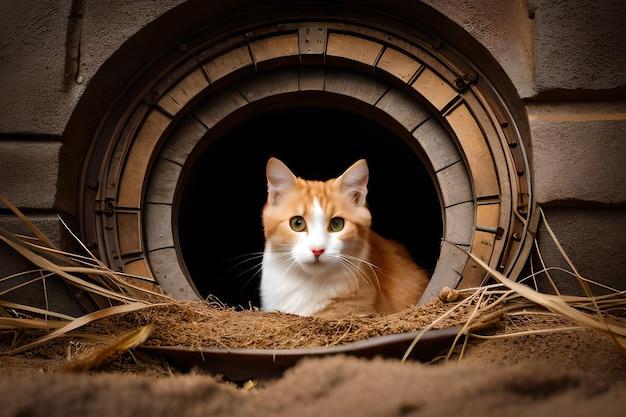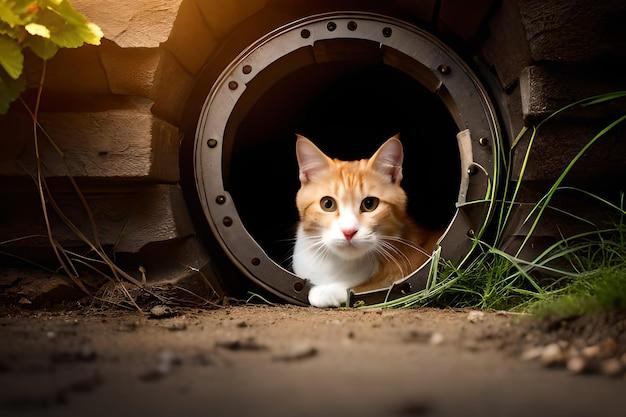Have you ever wondered about the mysterious bathroom habits of our feline friends? Cats are known for their independent nature, but when it comes to their unique way of handling their business, many questions arise. From the quirks of their litter box behavior to the fascinating anatomy of their nether regions, we will dive into the world of cats relieving themselves.
In this blog post, we will address some commonly asked questions such as: “Do cats pee and poop out of the same hole?” and “Why do cats not bury their poop?” We will explore interesting topics like cats’ preferences for specific spots, their potential for revenge pooping, and whether they practice good hygiene by cleaning up after themselves. So, grab a cup of coffee, sit back, and let’s uncover the mysteries behind our furry friends’ bathroom habits together!

Do Cats Pee and Poop From the Same Hole
If you’ve ever owned a cat or thought about getting one, you may have wondered about their bathroom habits. One burning question that often comes up is whether cats pee and poop from the same hole. Well, let’s dive into this fascinating feline topic and uncover the truth!
Understanding a Cat’s Anatomy
To answer this question, we first need to understand a cat’s anatomy. Cats have a unique body structure that sets them apart from many other animals. Like humans and other mammals, cats have separate openings for urination and defecation. So, no, cats do not pee and poop from the same hole. They actually have two distinct openings: the urethra, which is responsible for urine discharge, and the anus, which is where waste leaves their body.
The Urethra and Urination
The urethra is a tube that connects the bladder to the outside of a cat’s body. In female cats, it is shorter and wider compared to their male counterparts. When a cat needs to urinate, urine from their bladder passes through the urethra and is expelled outside. So, you can now reassure yourself that cats do indeed have a separate opening for urination.
The Anus and Defecation
On the other end of the digestive system, we find the anus. This is where waste is eliminated from a cat’s body. When a cat needs to defecate, the muscles in their colon contract to push the waste towards the rectum and out through the anus. It’s important to note that the anus is the only opening involved in the elimination of solid waste.
A Note on Hygiene
Cats are known for their cleanliness, and it’s no different when it comes to their bathroom habits. They instinctively use their paws to cover up their waste, mainly for hygiene reasons. This behavior helps to prevent the spread of bacteria and also serves as a way for cats to mark their territory.
In conclusion, cats do not pee and poop from the same hole. They have two separate openings: the urethra for urine and the anus for solid waste. Understanding a cat’s anatomy and bathroom habits can help us better care for these incredible creatures. So, the next time you’re pondering about feline physiology, you can confidently say that cats have their own built-in “plumbing system.”

FAQ: Do Cats Pee and Poop out of the Same Hole
Cats have been a beloved pet for centuries, enchanting us with their independent and mysterious nature. As cat owners, we often find ourselves pondering over their peculiar behaviors and habits. One common curiosity revolves around their waste elimination process. Do cats pee and poop out of the same hole? In this FAQ-style subsection, we will address this question and several others related to feline bathroom mysteries.